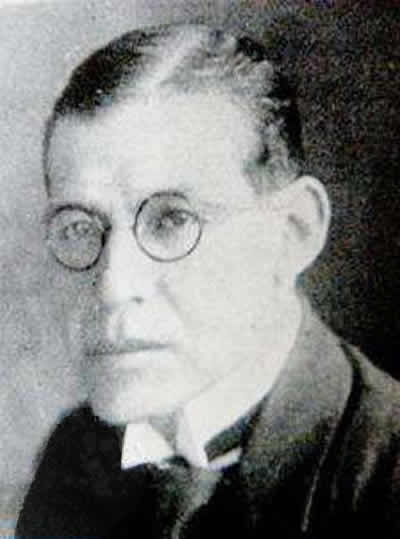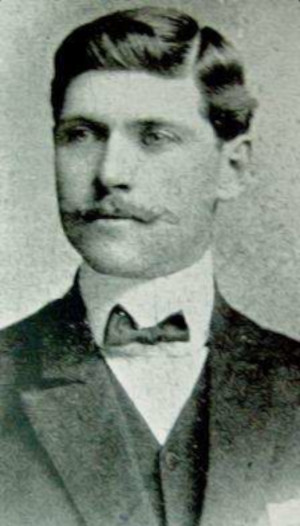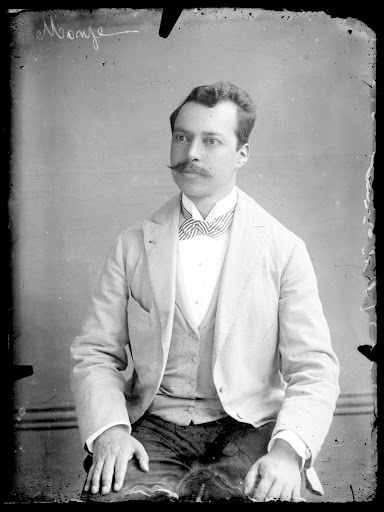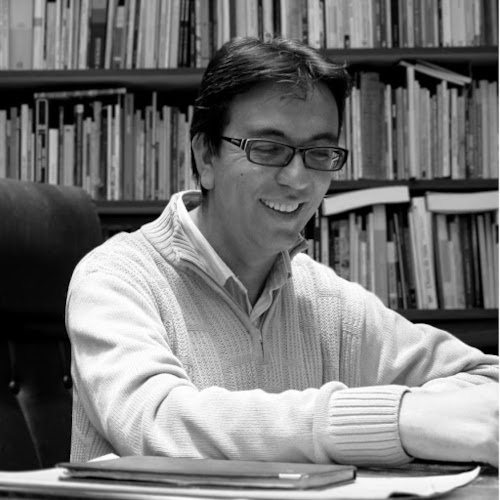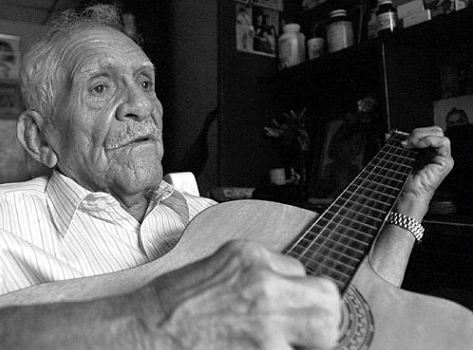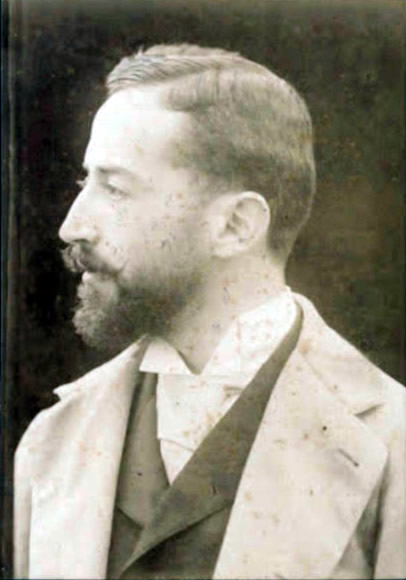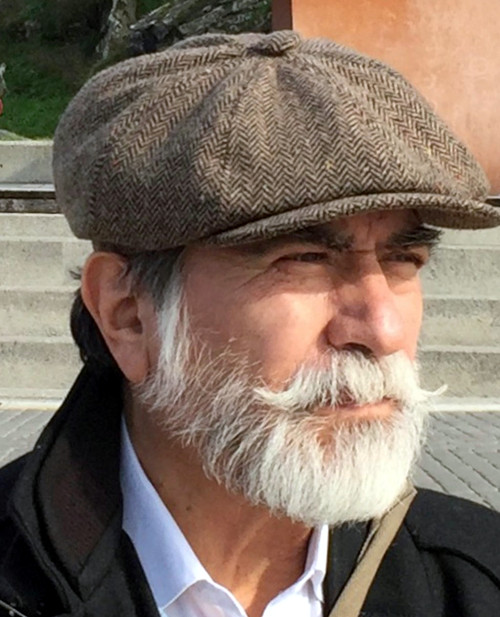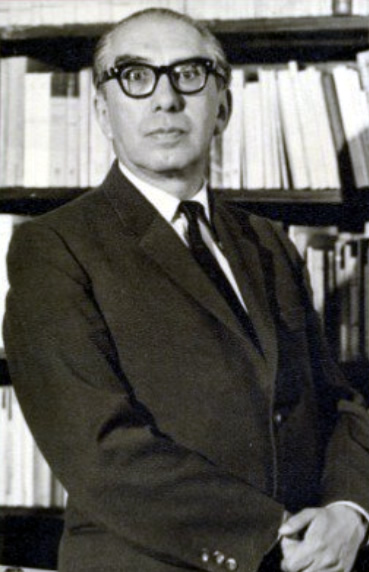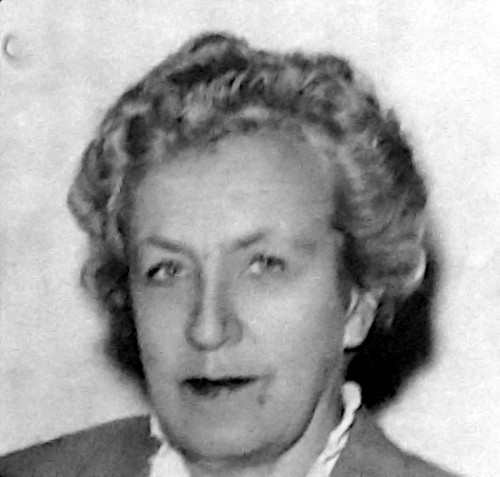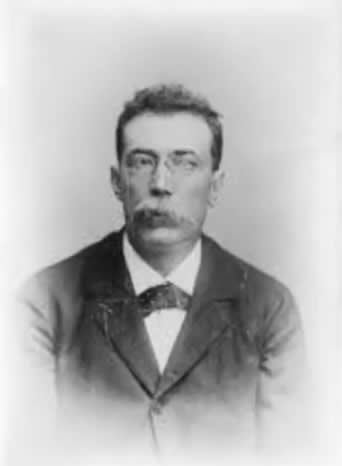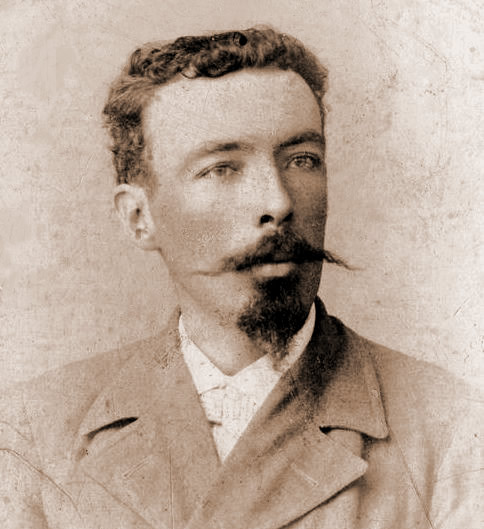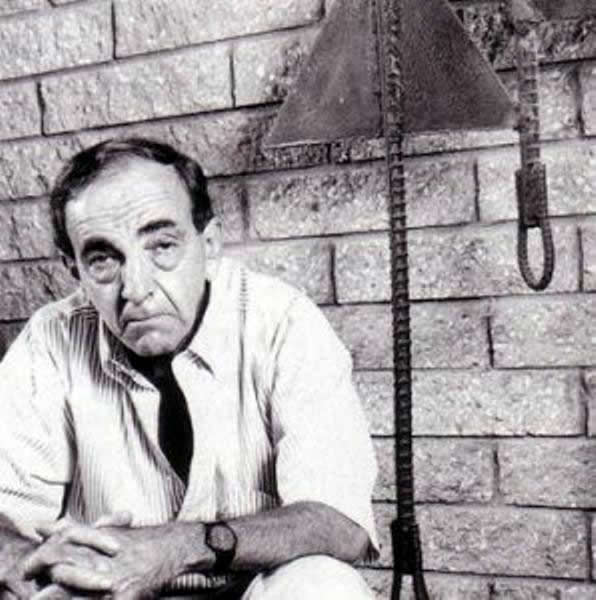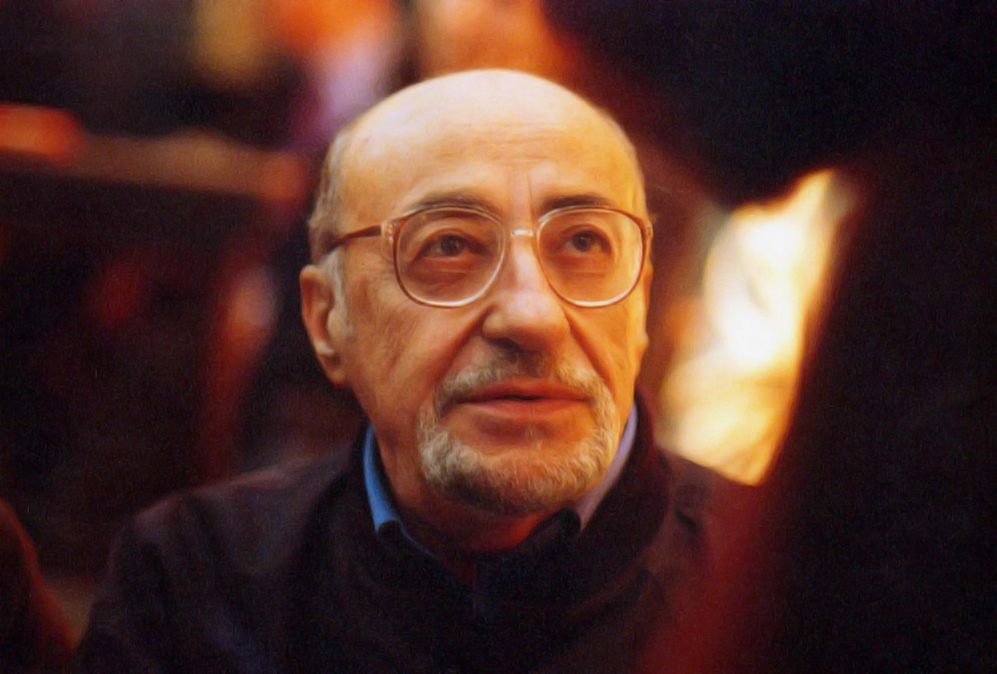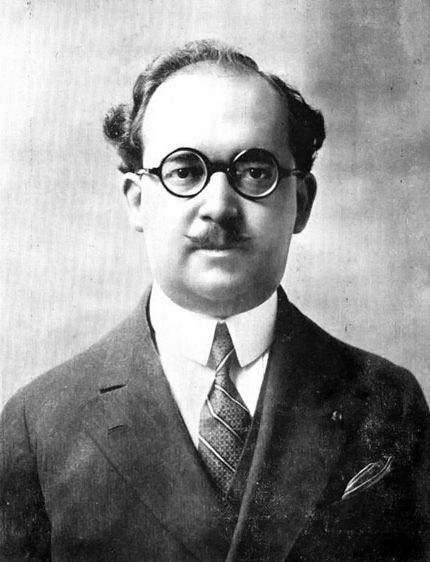Sergio Núñez Santamaría (Santa Rosa, Ambato, October 7, 1896 – Quito, 1982) was a novelist, short story writer, poet, playwright, literary critic and pedagogue. As a poet, he wrote in verse and prose, and was greatly influenced by the modernismo literary movement of Ruben Dario of Nicaragua. In 1918 he published his first poetry book, “Hostias de fuego,” with a prologue by Medardo Ángel Silva. He belonged to the “30 Generation,” a group of authors from the 1930’s Ecuador who used social realism in their fiction to denounce how Indians were treated in Ecuador. His novellas “Juego de hacienda” and “Circunferencia” are considered Indigenista fiction. A private school in Guayaquil bears his name.
Continue reading “Sergio Nuñez”Category: Writers from Ambato
Alfonso Moscoso
Alfonso Moscoso Sánchez (Ambato, January 22, 1879 – Quito, June 26, 1952) was an Ecuadorian poet and history professor. He belongs among the first writers to use modernismo in their poetry. Graduated in jurisprudence, he held the positions of Minister of the Supreme Court of Justice, Deputy, and Private Secretary of General Leónidas Plaza during his presidency. Although few of his poems exist, they are masterfully written. A modest and simple man, he was always reluctant to publish his poems. Most of his production is found in the books Vidriecitos de colores (1945) and Azabaches (1951). His famous poems are: “Los Aserradores,” “Suspirillos germánicos,” “Saudade,” “El viejo de la esquina” and “Relieve.”
Continue reading “Alfonso Moscoso”Celiano Monge
Celiano Monge Navarrete (Ambato, December 15, 1856 – Quito, November 21, 1940) was an Ecuadorian poet, historiographer, journalist, politician, educator, and founder of various newspapers. He taught philosophy, rhetoric, mathematics and experimental physics in schools in Quito, Latacunga and Ambato. He occupied important positions within the teaching profession: he was the Director of Education of the Tungurahua and Pichincha Provinces; and later he was appointed Member of the Superior Council of Public Education. He was the secretary of the Ecuadorian Academy of Language and the director of the National Academy of History. In 1939 Monge was named “Ambato’s favorite son and official chronicler.”
Continue reading “Celiano Monge”Xavier Oquendo Troncoso
Xavier Oquendo Troncoso (Ambato, 1972) is an Ecuadorian poet, editorial writer, editor and professor. He has published over 11 titles, including poetry, short stories, children’s literature and anthologies of young writers from Ecuador. In 1993 he won the Pablo Palacio Short Story Award and the National Poetry Award. In 1999 the city of Ambato awarded him the Juan León Mera Award for all his literary work. His book “Salvados del naufragio” (2005) is a compilation of his poetry from 15 years of work up to the year in which it was published. His poems appeared in English translation in a book entitled “Poems That Love Me” (2016), translated by Gordon E. McNeer. Some of his poems have also been translated into Italian and Portuguese.
Continue reading “Xavier Oquendo Troncoso”Gustavo Egüez Villacreses
Gustavo Egüez Villacreses (Ambato, March 26, 1923 – Guayaquil, May 29, 1981) was a poet and writer. Egüez received several awards for his poetry: In 1952 he won First Prize of the newspaper Diario La Nación (Guayaquil) for his poem “Romancero de Navidad′′ and he was bestowed the Gilded Orchid in the floral games of the magazine Radial Vida Porteña.
Continue reading “Gustavo Egüez Villacreses”José Trajano Mera
José Trajano Mera Iturralde was an Ecuadorian poet, playwright and diplomat with a literary and cultural heritage. He was born in Ambato in 1862 and died in Guayaquil in 1919. His father was the famous author Juan Leon Mera who wrote Ecuador’s first novel Cumanda (1877) and the Ecuadorian national anthem (1865). Trajano earned a degree in jurisprudence from the Central University of Ecuador. He died in Guayaquil in 1919 while holding the position of Undersecretary of the Ministry of Foreign Relations.
Continue reading “José Trajano Mera”Iván Oñate
Iván Oñate (Ambato, Ecuador, 1948) is an Ecuadorian poet and fiction writer. He has published 8 poetry books and 2 short story books, and his works have appeared in various anthologies.
Continue reading “Iván Oñate”Pablo Balarezo Moncayo
Pablo Balarezo Moncayo (Ambato, 10 December 1904 – 23 January 1999) was an Ecuadorian poet, journalist and essayist. He was active in the literary and cultural circles of his native city, Ambato, and in those of Quito, Cuenca and Guayaquil. In Guayaquil, in 1934, he directed the Sunday Literary Supplement of the newspaper El Universo. He was named Director of the House of Montalvo in 1966 and Director of the National Library in 1972.
Continue reading “Pablo Balarezo Moncayo”Blanca Martínez Mera
Blanca Martínez Mera de Tinajero (Ambato, October 5, 1897 – Ambato, June 20, 1976) was an Ecuadorian writer and teacher. With the publication of her book En la paz del campo in 1940, she became the first woman to publish a novel in Ecuador. Her parents were the writer Luis A. Martínez (1869–1909) and Rosario Mera Iturralde, the daughter of the writer Juan León Mera (1832–1894). Later in life she became the director of the Casa de Montalvo, a museum and cultural center in Ambato, whose eponymous magazine she edited for many years. A school in her hometown bears her name in honor of her memory.
Continue reading “Blanca Martínez Mera”Juan Benigno Vela
Juan Benigno Vela Hervas (Ambato, July 9, 1843 – Ambato, February 24, 1920) was an Ecuadorian politician, lawyer, journalist, educator, writer and poet. He earned his law degree from the Central University of Ecuador. Since the age of 33 he was completely blind. He founded the newspapers El Combate, La Idea, La Candela, El Argos and El Pelayo. He was an opponent of the conservative governments of Presidents Gabriel García Moreno and General Ignacio de Veintemilla. For his beliefs he was several times persecuted, imprisoned or exiled. From 1912-1919 he was a senator during the governments of Presidents Leónidas Plaza (1901-1905, 1912-1916) and Alfredo Baquerizo Moreno (1916-1920). He is remembered as a consistent advocate for human rights and freedom in Ecuador.
Continue reading “Juan Benigno Vela”Luis A. Martinez
Luis A. Martinez (Ambato, June 23, 1869 – November 26, 1909) was an Ecuadorian writer, painter, politician, and agriculturist. His novel A la costa (1904) is a masterpiece of Ecuadorian literature, and is one of the earliest works of realism in Ecuador. He was also a painter; some of his best paintings are housed outside of Ecuador: Two are in the United States Library of Congress, two in the Modern Art section of the Vatican Museum, and one is in Rio de Janeiro, Brazil. He was an opponent of the government of Eloy Alfaro (President of Ecuador in 1895-1901, 1906-1911) and fought against the liberal guerillas of the 1890s.
Continue reading “Luis A. Martinez”Carlos Béjar Portilla
Carlos Béjar Portilla is a science fiction writer and poet. He was born in Ambato on February 17, 1938. He is considered an important storyteller of the 1970’s Ecuador. In 1982 he was declared a founding member of the “Society of Writers of Ecuador.”
Continue reading “Carlos Béjar Portilla”Jorge Enrique Adoum
Jorge Enrique Adoum, or Jorgenrique Adoum (Ambato, June 29, 1926 – Quito, July 3, 2009) was an Ecuadorian poet, novelist and playwright. Adoum is best known for his poetry collections and his celebrated novel Entre Marx y una mujer desnuda (1976). He is regarded as one of Ecuador’s most important writers and intellectuals of the 20th century. Nobel Prize winner Pablo Neruda hailed Adoum as “the best Latin American poet of his generation.” An English translation of Adoum’s poetry was published by Katherine M. Hedeen and Víctor Rodríguez Núñez under the title “prepoems in postspanish and other poems” (Action Books, 2021). This collection includes three of Adoum’s most groundbreaking books: “Currículum mortis” [Curriculum Mortis] (1973, 1979), “prepoemas en postespañol” [prepoems in postspanish] (1973, 1979), and “El amor desenterrado” [Love Disinterred] (1993). In 1989 the President of Ecuador conferred on Adoum Ecuador’s highest literary prize, the Eugenio Espejo Award, for his lifetime of literary work.
Continue reading “Jorge Enrique Adoum”Homero Viteri Lafronte
Homero Viteri Lafronte (Ambato, January 24, 1892 — Santiago, Chile, November 10, 1976) was an Ecuadorian writer and historian whose published works include historical monographs and conference papers. He earned a jurisprudence doctorate from the Central University of Ecuador. In 1949 he was the head of the Ecuadorian delegation to the U.N. in Lake Success, NY. He was several times President of the Legal-Literary Society of Quito and belonged to several national and international institutions, and also served as the deputy director of Ecuador’s National Academy of History.
Continue reading “Homero Viteri Lafronte”Jorge Enrique Adoum – La Caja de Pandora Interviews – Part 1 and 2 (Spanish Audio)
Jorge Enrique Adoum was among Ecuador’s most brilliant writers. In these interviews, made in the latter part of his life, Adoum shares his experiences as a poet, novelist, playwright, politician and diplomat on an Ecuadorian TV program called La Caja de Pandora. Adoum also discusses some of his books, including Ecuador Amargo (1949), Entre Marx y Una Mujer Desnuda (1976), and De Cerca y de Memoria: Lecturas, Autores, Lugares (2002). Adoum was born in Ambato, Ecuador in 1926 and died in Quito, Ecuador on July 3, 2009. He was awarded the nation’s top literary award Premio Eugenio Espejo in 1989.

